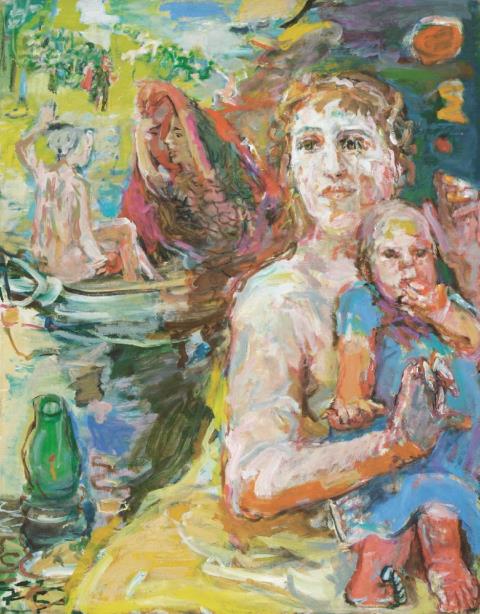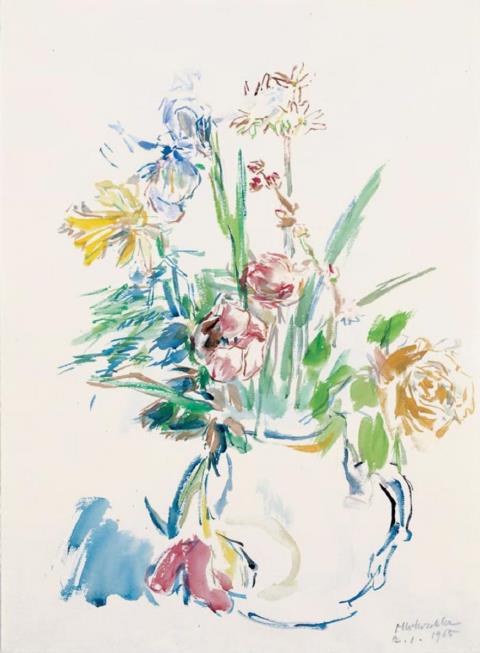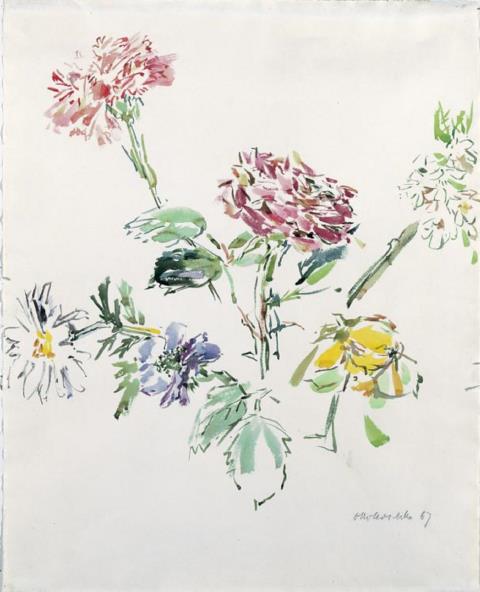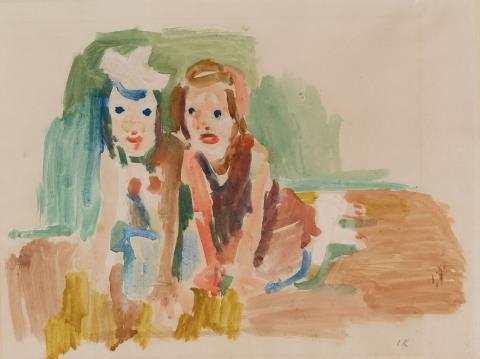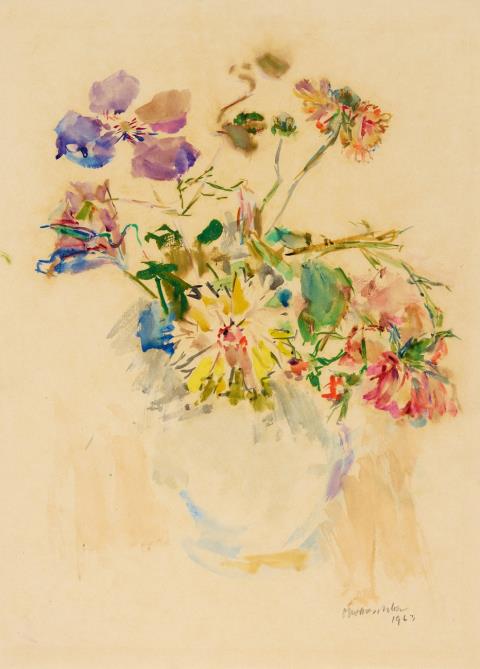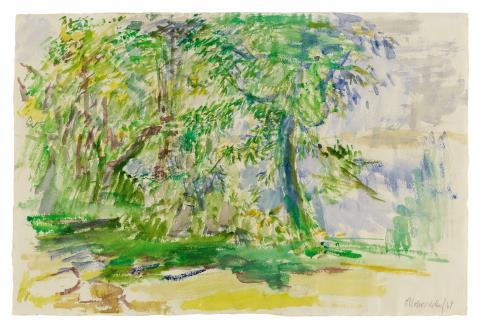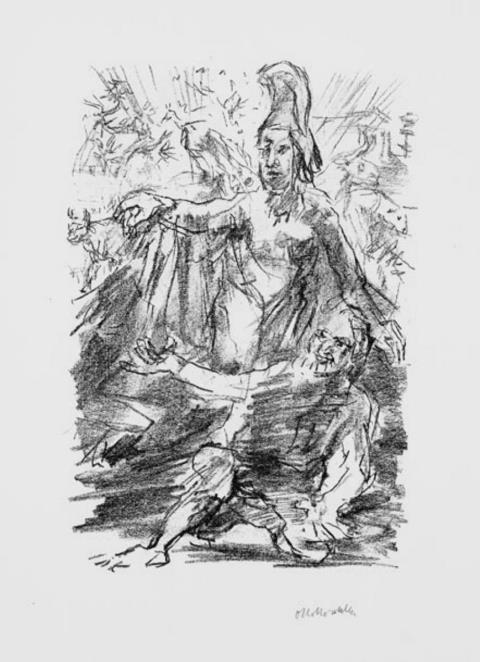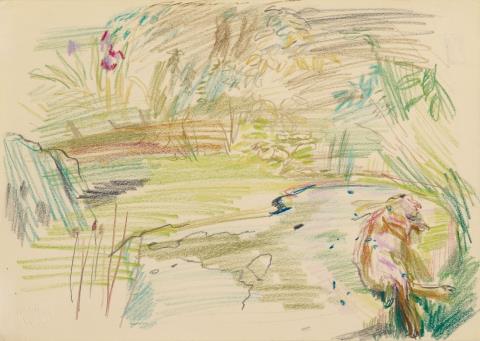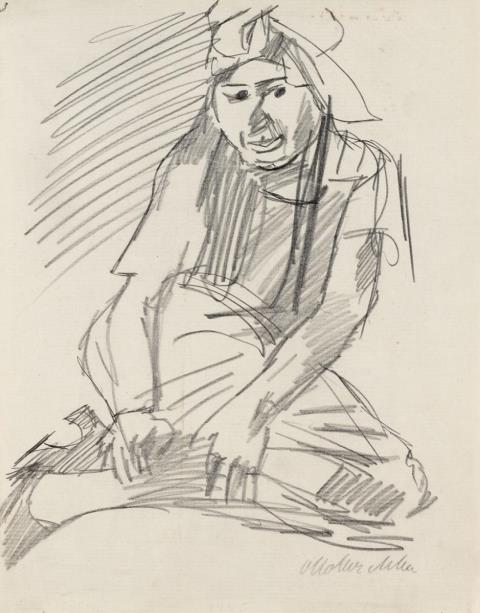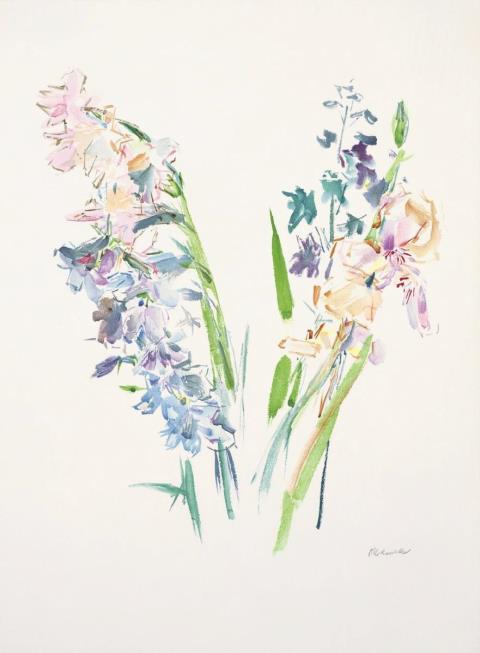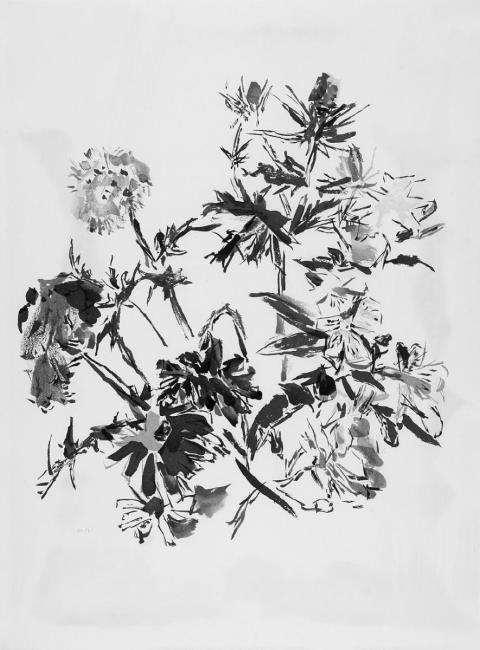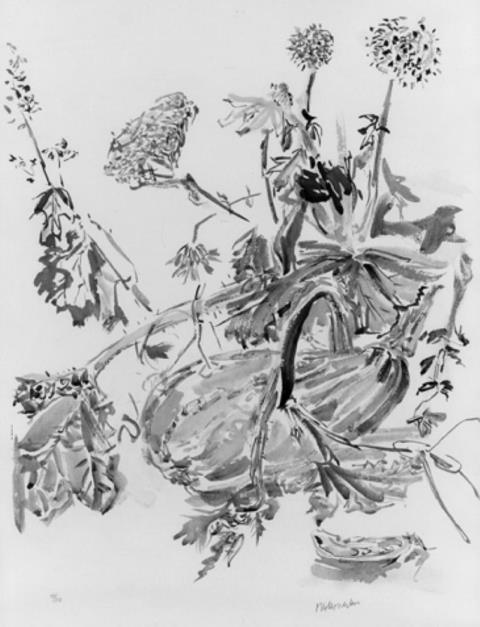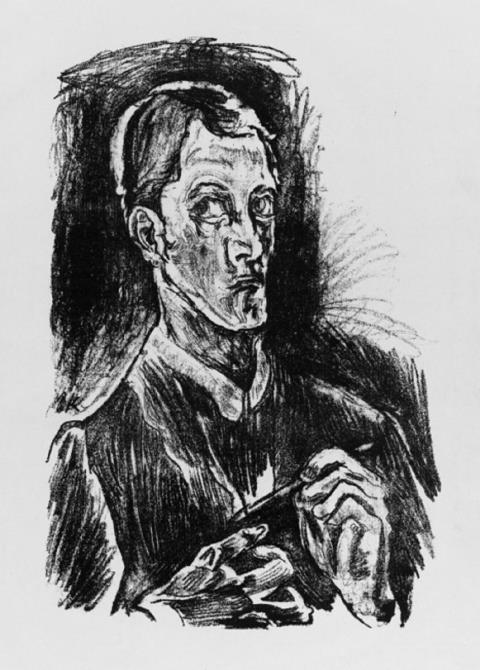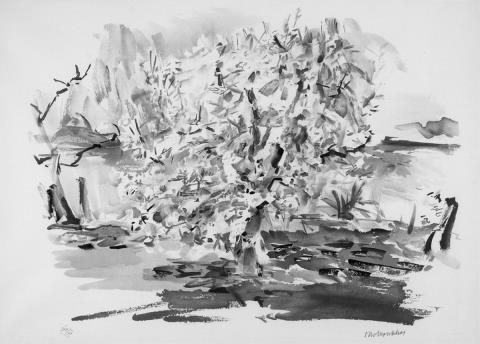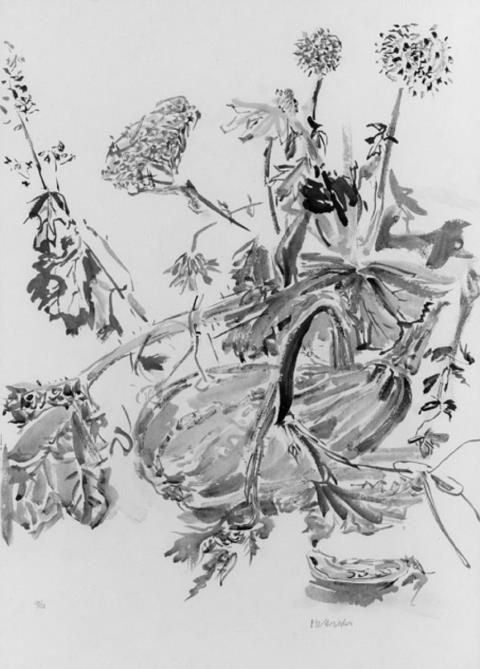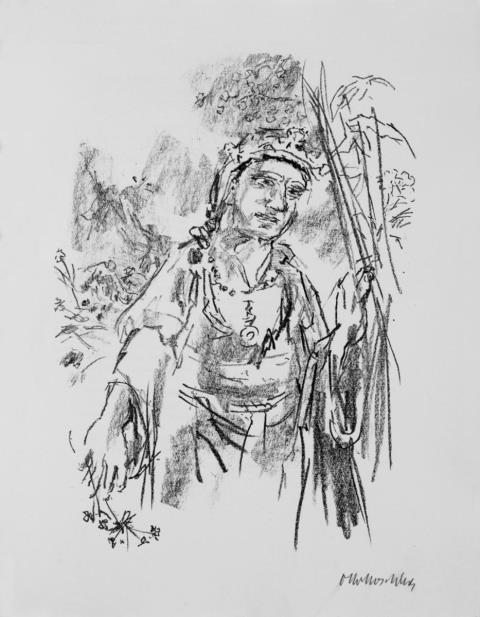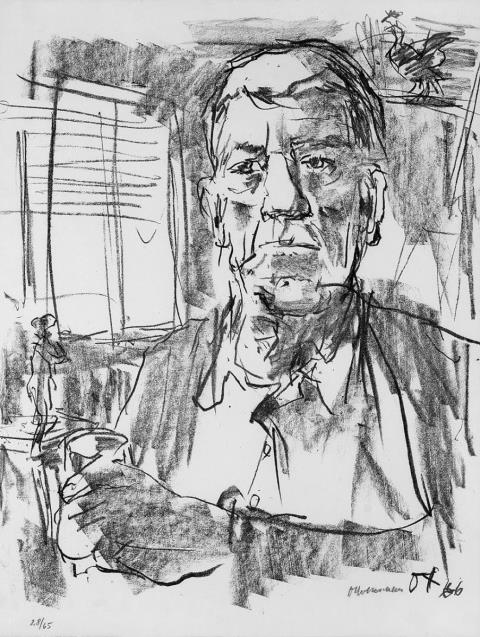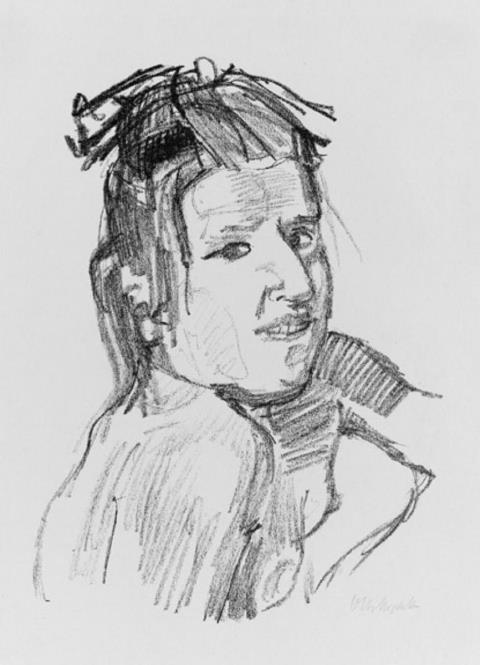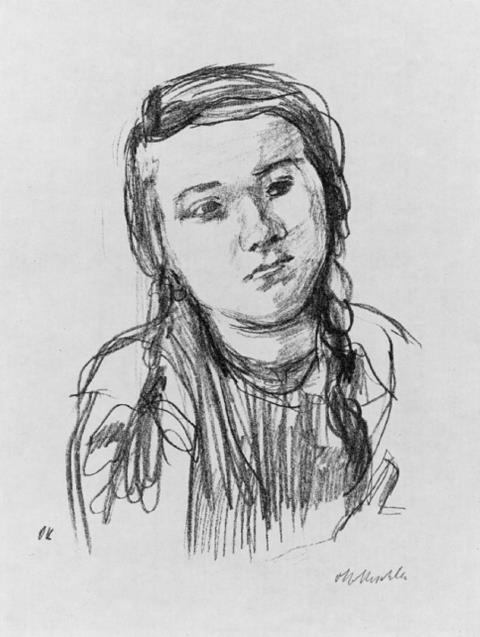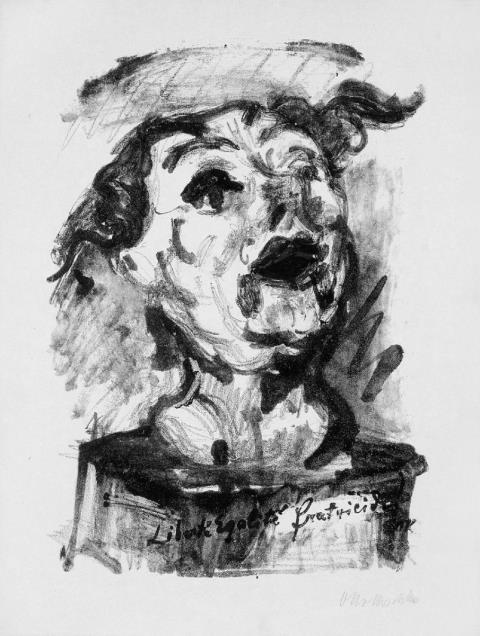He wrote, painted, and constantly reinvented himself: The Austrian artist Oskar Kokoschka loved heads and Alma Mahler, who gifted him hell and paradise. An icon of Expressionism, he is the subject of lively debate still today, is constantly exhibited, highly revered, and much discussed.
(...) Continue readingOskar Kokoschka – Encouragement from Carl Otto Czeschka and Adolf Loos
Oskar Kokoschka was born on 1 March 1886 in Lower Austrian Pöchlarn. He was the second son of the travelling dealer Gustav Kokoschka and his wife Maria. In 1887, the family moved to Vienna, and that same year, his old brother died. Years later, a younger brother and a sister were born. Oskar Kokoschka created his first watercolours and drawings whilst still a student at the imperial-royal state school in Vienna. The important painter and art patron Carl Otto Czeschka was so taken with these first artistic attempts that he went against the declared wishes of the other teachers and set Kokoschka in his own class. Thus, a career as painter was open to the artistically gifted boy. He attended the Decorative Arts School in Vienna from 1905 to 1909 where he met Elsa Oeltjen-Kasimir, who would later make a name for herself as sculptress and painter. Of much greater significance for the path of the budding artist, particularly impressed by the works of Vincent van Gogh at the time, was his contact with Adolf Loos, to whom he owned not only the mediation of numerous picture sales, but also his detachment from Art Nouveau.
Alma Mahler: Oskar Kokoschka’s muse and downfall
Oskar Kokoschka developed an almost self-destructive passion for Gustav Mahler’s widow Alma, whom he met in 1911. The lover of many celebrities of her time, Alma Mahler was indeed attracted to the artist - seven years her junior – and even lived with him temporarily, but in the end found herself unable to completely fulfil Kokoschka’s expectations and decided not only to abort their child, but also to end the relationship after around three years. This short but intense relationship had, however, an enormous effect on Kokoschka’s creative power, who became convinced that his beloved would marry him if only he could create a true masterpiece. He thus created his famous painting The Bride of the Wind, which was originally intended to have the title Tristan and Isolde. It brought the artist enormous fame, but not the fulfilment of his desires. Deeply affected by the separation, he volunteered as a soldier in the First World War, was seriously wounded and only survived only through fortunate circumstances.
Escape to Switzerland; great post-war success
After the war, Oskar Kokoschka took a position as professor in Dresden and through his friendship with the director of the Dresden painting gallery, Hans Posse, was able to present his works in the museum’s own collection and even at the 13th Venice Biennale. In the years between the wars, the passionate Expressionist and portrait painter became an artist on an international scale. Even within National Socialism he found particular attention: His art was classed not only as degenerate, but Hitler named him personal “art enemy no. 1”: a dubious acknowledgement, which might have on the one hand pleased the dedicated resister Oskar Kokoschka, but on the other also forced him into exile in Prague. There he met his wife Olda Palkovské, painted the portrait of the state president, and took Czechoslovakian citizenship. With the general mobilisation, he fled further to England where he remained until the 1950s when he eventually moved to Switzerland to find a new home. He was highly revered as an artist until his death, even painting the portrait of the German Federal Chancellor Konrad Adenauer.
Oskar Kokoschka died on 22 February 1980 in Montreux; his artistic career is commemorated to this day by the Oskar Kokoschka Prize which honours special artistic achievements.
Oskar Kokoschka - Works that have already been sold at Kunsthaus Lempertz:

